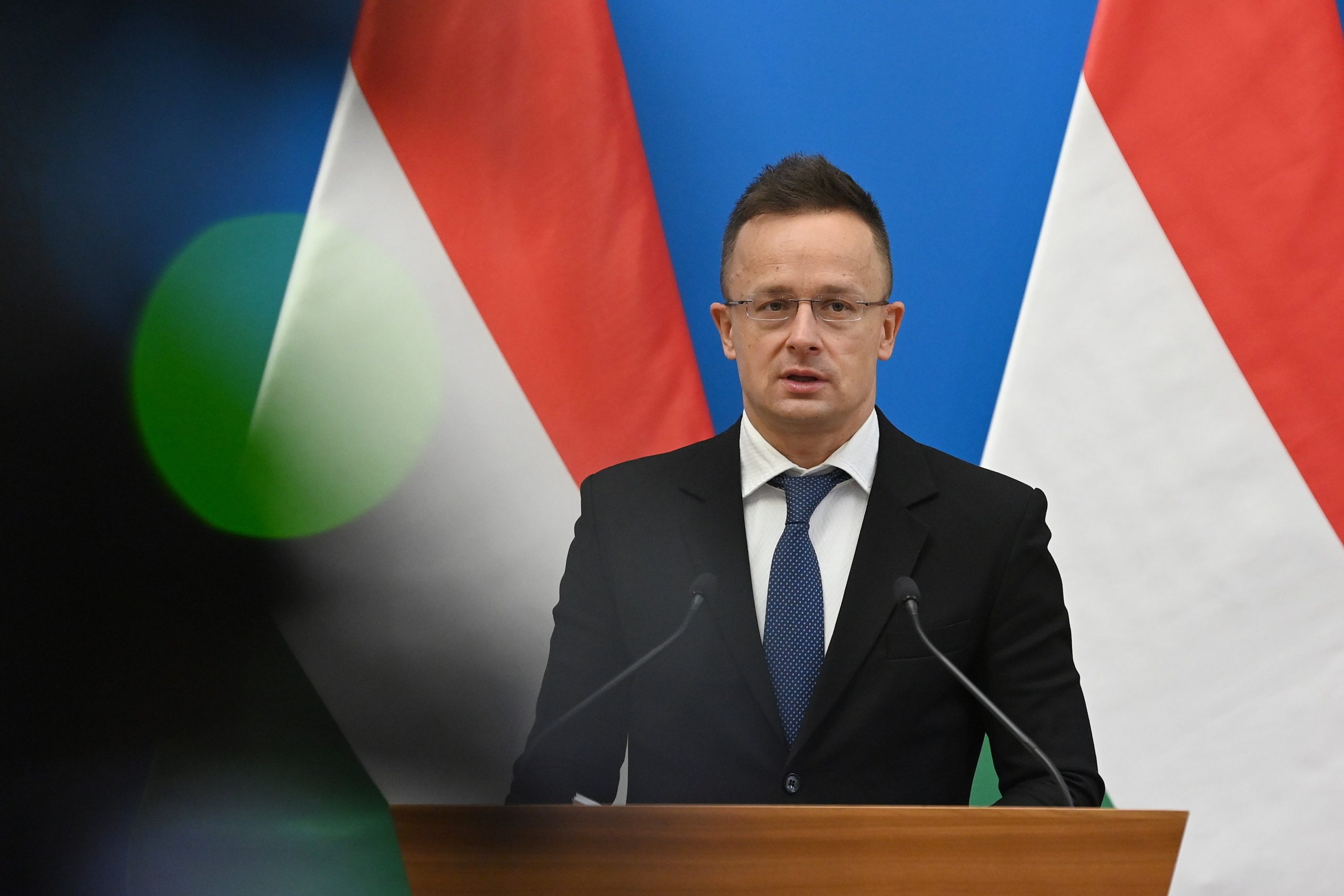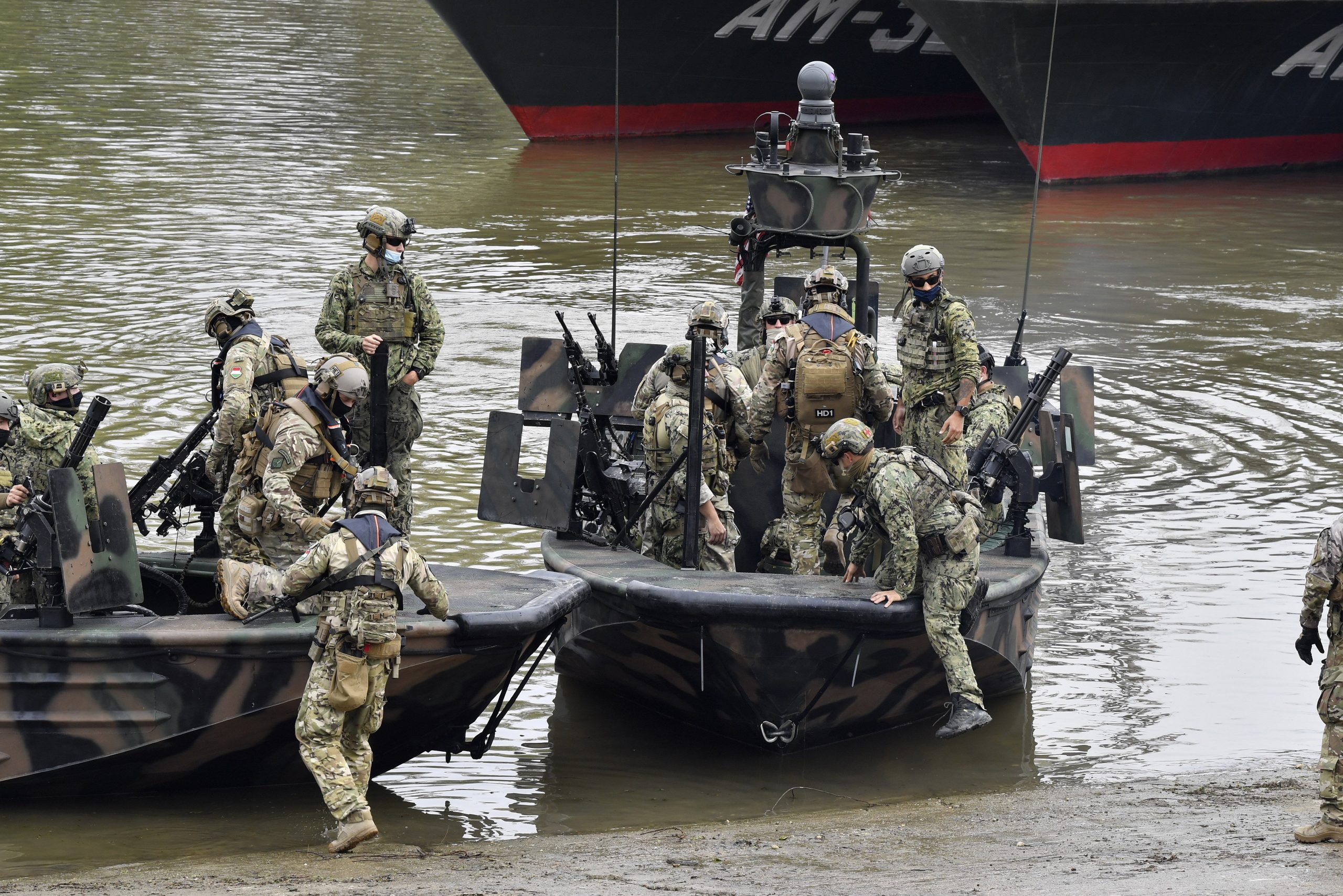
"No one can ask" Hungary to refrain from intensifying bilateral relations with Russia, Szijjártó said, adding that "Foreign policy must no longer be based on symbols or ideologies, but on national interests."Continue reading

The U.S. is reportedly in discussions with several allies to deploy thousands of troops to Eastern European NATO member countries near the Ukrainian border to pre-empt a possible Russian invasion. Romania, Bulgaria, and Hungary are among the countries considering this action, according to CNN. The deployments would be comprised of approximately 1,000 personnel to each country and would be similar to the forward battle groups currently stationed in the Baltic States and Poland.
This article was originally published on our sister-site, Ungarn Heute.
Pentagon press secretary John Kirby said on Monday that 8,500 U.S. troops had been put on heightened alert, but they could only be activated with full NATO support. U.S. President Joe Biden added Tuesday that to save time, those troops could be deployed to Europe sooner, mainly because NATO’s eastern members have “reason for concern.”
According to a European diplomat, the United States and the United Kingdom are also considering the new pre-invasion deployments, but not all 30 NATO members are willing to do so. Germany, for example, has previously stated that they would not supply weapons to Ukraine, and would only build field hospitals.
Because of the lack of unity in NATO, the United States has decided to start bilateral negotiations with countries that are ready to receive troops.
Liberal news portal hvg.hu has learned from an anonymous ministry source that discussions with Hungary’s Ministry of Defense are underway, but the arrival of troops is not yet on the agenda, although “the situation could change even within 24 hours.”
The ongoing negotiations and the possible deployment of troops in Eastern Europe could further provoke Moscow, which demands NATO to stop its eastward expansion, withdraw its troops from countries that have joined since 1997 (including Hungary), and not deploy missile systems within range of Russia. Of course, NATO does not support this, but the Russians could see the offer as a rejected ultimatum that could legitimize the escalation of tensions in eastern Ukraine to the point of occupation and/or an attempted coup.
Meanwhile, Romania’s defense minister said his country was prepared for a possible major Ukrainian migration, but added that apart from economic sanctions, a real “hot” war was not expected. A large number of ethnic Hungarians live in Ukraine. Currently, a large number of Hungarians live in the flat, rural areas of Transcarpathia (eastern part of Ukraine) and in the upper reaches of the Tisza, Latorca (Latorica), and Borzsa (Borzhava) rivers. The number of settlements inhabited by Hungarians is 114, of which 78 have a Hungarian majority.
Atv.hu contacted the Ministry of Defense to confirm whether there are indeed negotiations between the United States and Hungary on the arrival of NATO troops.
“Hungary is a loyal member of NATO, but Hungary’s interest in the Ukrainian-Russian conflicts is a peaceful, negotiations-based agreement of the issue. For Hungary, it is best if there is peace on its eastern border and not armed conflict. Therefore, we will always support the settlement of disputes through negotiation,” the ministry replied.
Featured photo illustration by Zoltán Máthé/MTI